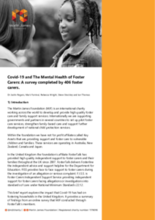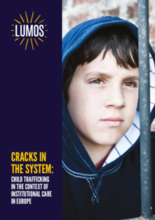

Displaying 491 - 500 of 1646
This brief report explores the impact that Covid-19 has had on fostering households in the United Kingdom.
This article reports the findings of MIRRA, a participatory research project on the memory and identity dimensions of social care recordkeeping.
This conference seeks to explore how such diverse perspectives can inform a new ethics of adoption and the care of orphaned or abandoned children in Muslim communities.
Cracks in the System is a new report from Lumos that is the first of its kind to systematically explore the links between institutional care and child trafficking in Europe.
"Foster care [in the UK] is in a “state of emergency” as the number of referrals rockets while the number of people looking to take children in has halved during the coronavirus pandemic," according to this article from the Independent.
In this commentary piece, Anne Longfield, Children’s Commissioner for England, explores the use of children's care homes in England and the need for improved supports to prevent placement in children's home and to provide for the needs of children and young people who are placed in these homes.
This collection of guidance from the UK Department for Education lays out what local authority children’s services need to do during the coronavirus (COVID-19) outbreak.
A recent study from Wales has found that "pregnant women who are at risk of their babies being removed from their care in the first year of life are far more likely to have had mental health problems compared with other expectant mothers," says this article from the Guardian.
This guidance explains the strategy for infection prevention and control, including the specific circumstances PPE should be used, to enable safe working in education, childcare and children’s social care settings in England during the coronavirus (COVID-19) outbreak.
Through the lens of institutional ethnography, this paper explores how experiences of education inside one Secure Children’s Home in England are shaped by the institution.


